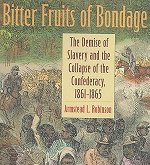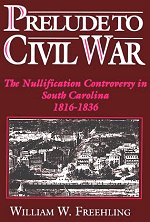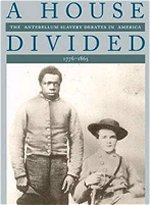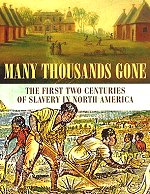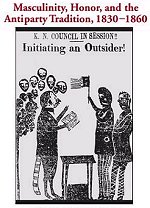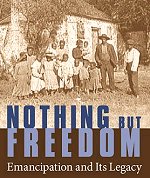| |
Norman Mailer, the novelist and pugilist whose 1969 campaign for mayor of New York City was the most articulate and pugnacious and inspiring secession episode of the twentieth century, called himself a "left conservative." He was not playing the goofy juxtaposition game. Rather, Mailer acknowledged that "the Left has been absolutely right on some critical problems of our times, and the conservatives have been altogether correct about one enormous matter -- which is that the federal government has no business whatever in local affairs."
For Mailer, secession is neither left nor right but a vivifying amalgam of both. Or maybe it is a refreshing embrace of neither. One cannot, after all, stand on two feet while listing badly to either side.
From Greenwich Village to Canarsie, Mailer preached the righteousness of local self-government to bemused urban leftists, who were not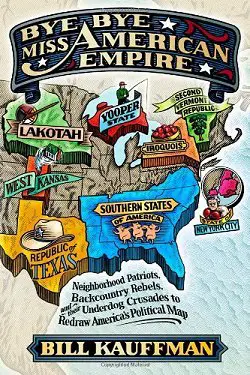 always receptive audiences. "Radicals seem forever unable to understand that states' rights can be invoked and honored to create a Socialist community as well as to defend slavery (or other conservative and reactionary objectives)," wrote William Appleman Williams, exasperation rising from the page.2 So wed has the modern left been to centralized authority that it hesitates to use the most efficacious tools at hand to Fight the Power on a variety of fronts, from the deployment of oxymoronical state National Guards to desert sands to the federal nullification of state drug laws. In the 1990s, inspired by the magnificent dissolution of the Soviet Empire, Americans started asking hard but edifying questions about self-determination for places as diverse as Northern California, West Kansas, and Upstate New York. These corners of America were not seeking to leave the country. Instead, they wanted to redeem certain American promises whose redemption was not possible for citizens in, say, Yreka (population seven thousand), in a California of thirty-five-million-plus people. always receptive audiences. "Radicals seem forever unable to understand that states' rights can be invoked and honored to create a Socialist community as well as to defend slavery (or other conservative and reactionary objectives)," wrote William Appleman Williams, exasperation rising from the page.2 So wed has the modern left been to centralized authority that it hesitates to use the most efficacious tools at hand to Fight the Power on a variety of fronts, from the deployment of oxymoronical state National Guards to desert sands to the federal nullification of state drug laws. In the 1990s, inspired by the magnificent dissolution of the Soviet Empire, Americans started asking hard but edifying questions about self-determination for places as diverse as Northern California, West Kansas, and Upstate New York. These corners of America were not seeking to leave the country. Instead, they wanted to redeem certain American promises whose redemption was not possible for citizens in, say, Yreka (population seven thousand), in a California of thirty-five-million-plus people.
Establishment liberals and empire-minded conservatives--which is to say the entire spectrum of permissible opinion in the land of the fee--were not amused. Secession, lectured Peter Overby of Common Cause, "leads down a dead-end alley, falsely promising escape from a world plagued by lousy schools, higher taxes, rising crime and racial tensions." The compulsively coercive communitarian sociologist Amitai Etzioni said that secessionists "selfishly promote a smaller community." Only a man who is part of no community at all would use such phraseology.
Yet if the captive nations of the Eastern Bloc could throw off centralized tyranny, why not Chemung County, New York? The Soviet Constitution had provided that "each Union Republic shall retain the right freely to secede from the USSR." This was the meaningless paper guarantee to end all meaningless paper guarantees, but the fifteen Soviet republics did indeed secede in 1990-91. Gorbachev was no Abe Lincoln, that's for sure. Lithuanians are forever grateful.
Somehow the fact that Latvia and Estonia and the Soviet Muslim-stans seceded from the USSR never quite penetrated the American dome. After all, secession is bad. Besides, other red devils had learned well the lessons of the Civil War. Zhu Rongii, Chinese premier, responding to a question about China's intentions toward Taiwan at an April 8, 1999, press conference with President Clinton, said, "Abraham Lincoln, in order to maintain the unity of the United States . . . resorted to the use of force . . . so, I think, Abraham Lincoln, president, is a model, is an example." That is a jujitsu master.
Secession may be an act of desperation but at its best it is animated by passion and enlivened by wit. For what good is ever accomplished without laughter and joy? Grave ideologues and humorless commissars of acceptable thought will never be among secession's constituency. They are the prison guards keeping the rabble from watering the tree of liberty with the blood of tyrants, in Mr. Jefferson's sanguinary and sanguine image.
We are a country born in secession against a distant colonial power. The Declaration of Independence asserts that "Governments are instituted among Men, deriving their just Powers from the Consent of the Governed," and that "whenever any Form of Government becomes destructive of these Ends, it is the Right of the People to alter or to abolish it." This does not imply the perpetuity of established states; should a government commit "a long Train of Abuses and Usurpations," the people have not only the right but the duty to throw it off. To secede means to withdraw. It is not self-effacement; the seceding party does not disappear. It simply removes itself from an arrangement it no longer finds satisfactory and sets up another.
While the Constitution does not expressly forbid the secession of a state from the union, it doesn't make a provision for breaking away, either. The Berlin-born legal scholar Francis Lieber told the people of his adopted state of South Carolina in 1851 that the "absence of all mention of secession" in the Constitution "must be explained on the same ground on which the omission of parricide in the first Roman penal laws was explained--no one thought of such a deed." Perhaps. Or maybe the entrance into a compact implies the right of exit, which need not be codified.
Thus the legal confusion, not to mention carnage, of 1861, when the Civil War erupted over the South's desire to secede--in order, it must be said, to protect slavery. Happily for the future states of West New York and Jefferson, however, Article IV, Section 3, of the US Constitution makes state partition a straightforward affair:
New states may be admitted by the Congress into this union; but no new state shall be formed or erected within the jurisdiction of any other state; nor any state be formed by the junction of two or more states, or parts of states, without the consent of the legislatures of the states concerned as well as the Congress.
Four states have been formed in this way: Vermont out of New York, Kentucky out of Virginia, Maine out of Massachusetts, and, most recently, West Virginia, which was sliced from the Old Dominion in 1863. The birth of West Virginia was problematic, if illuminating. Shall we take a quick spin down those country roads toward Almost Heaven?
The western part of Virginia, mountainous and inhospitable to slavery, was conservative unionist territory. Neither abolitionist nor secessionist, its "peasantry of the West" had voted by a margin of about three to one against the Virginia Ordinance of Secession. (The margin of rejection was closer--34,000 to 19,000--in the counties, not all of them northwestern, that eventually made up the state of West Virginia.)
Western Virginia unionists organized a ramshackle government and sent representatives and senators to the US Congress, which recognized them as the rightful delegates from Virginia. The mountaineers petitioned Washington for admission as a new state. The proposed boundaries were highly questionable: Half the counties of what became West Virginia had supported the secession ordinance and therefore belonged in the Confederate State of Virginia.
Attorney General Edward Bates advised President Lincoln that the creation of West Virginia was clearly unconstitutional, for the legislature of Virginia had not given its consent. Thaddeus Stevens, the South-hating Pennsylvania Radical Republican who got off one of the all-time deathbed lines ("It is not my appearance but my disappearance that troubles me"), agreed with Attorney General Bates but supported admission: "I say then that we may admit West Virginia as a new state, not by virtue of any provision of the Constitution but under our absolute power which the laws of war give us. I shall vote for this bill upon that theory and upon that alone, for I will not stultify myself by supposing that we have any warrant in the Constitution for this proceeding."
The "absolute power which the laws of war give us": Muzak to imperial ears! War is a warrant--a limitless warrant. Abraham Lincoln took the Stevens view. When bullets fly, constitutional niceties go with them. "The division of a state is dreaded as a precedent," explained the president--but why? Two states instead of one made sense. Surely God intended West Virginia, else He would not have put the Allegheny Mountains betwixt it and Virginia. Moreover, if Virginia's rebellion against the union were successful, its western counties would have been transferred, against their will, into a confederacy to which they had not given their assent.
"It is said that the admission of West Virginia," wrote President Lincoln, "is secession, and tolerated only because it is our secession. [Undeniably true, by the way.] Well, if we call it by that name, there is still difference enough between secession against the constitution, and secession in favor of the constitution." This is Abe at his most, ah, flexible.
West Virginia came into the union as the thirty-fifth state on June 20, 1863, "the bastard child of a political rape" as former Virginia governor and Confederate general Henry A. Wise crudely observed. It wasn't pretty, but if mountaineers could do it, why not Yoopers and other outnumbered outliers today?
Contra Lincoln, the secission of states is a profound affirmation of the American ideal of local self-government. Bigness is just not compatible with self-rule. Thomas Jefferson wrote James Monroe in 1786: "Considering the American character in general . . . a State of such extent as one hundred and sixty thousand square miles [roughly the size of California] would soon crumble into little ones." That California, for example, has not crumbled suggests a sorry decline in the "American character in general" to which Jefferson adverted.
Now, as for states leaving altogether . . .
Just what is so eternal about the American union anyway? As Paul C. Nagel wrote in his study of the idea of union in antebellum America, "What Americans of the late eighteenth century considered to be simply one means for confronting common problems gradually became an end, an ultimate, an embodiment of society." Union began as a strategic imperative. It became, in President Lincoln's seraphic design, a perpetual design to be preserved by "the better angels of our nature." Nary a cherubim had been present three-quarters of a century earlier at Independence Hall in Philadelphia. The undying and indivisible nature of the American union was not a subject anyone at all dwelled upon during the Constitutional Convention of 1787, when fifty-five delegates convened to revise the Articles of Confederation -- the first American constitution, the "firm league of friendship" that the thirteen American states had formed during the Revolution -- but scrapped the Articles altogether in favor of the Constitution, which Patrick Henry called "the most fatal plan that could possibly be conceived to enslave a free people." The brilliant and bibulous Maryland delegate Luther Martin, appalled at the consolidationist scheme offered by James Madison and the Virginians, said that "he had rather see partial confederacies take place, than the plan on the table."
Madison replied that partial confederacies or a "total separation" from one another "would be truly deplorable, & those who might be accessory to either, could never be forgiven by their Country, nor by themselves." Piling on, New York's Alexander Hamilton added that one consequence of "a dissolution of the Union" would be a North America forever at war with itself, as its various confederacies made alliances with rival European powers. As if to validate Hamilton, Gunning Bedford of Delaware warned the larger states that unless they acquiesced in the matter of equal representation of states in the national legislature, "the small ones will find some foreign ally of more honor and good faith, who will take them by the hand and do them justice." A North America of two or more confederacies was not regarded on all hands as a dread eventuality to be avoided at all costs, but the overwhelming sentiment of the Constitutional Convention was for a union of the thirteen states as well as the inevitable western additions. The matter of a state withdrawing from the union was never brought up in Philadelphia. Yet to assert the union's perpetuity would have seemed risibly presumptuous. As Richard Weaver wrote of the states, "Had they been told they were entering a door which could never be opened again, it is questionable whether a single one would have entered."
Nathaniel Gorham of Massachusetts, an advocate of the new Constitution, conceded that "the States as now confederated have no doubt a right to refuse to be consolidated, or to be formed into any new system." He hoped they would see the light and come together, but such linkage could hardly be expected to last until the end of time. He asked the Constitutional Convention on August 8, 1787, "Can it be supposed that this vast Country including the Western territory will 150 years hence remain one nation?" Impossible! Surely the continent would fracture into republics of a manageable size; no leviathan could span the endless America. It did remain one nation, of course -- but at the cost of half a million dead.
Copyright Chelsea Green 2010, All Rights Reserved.
|
|

